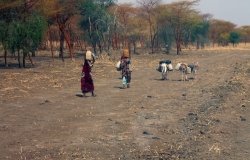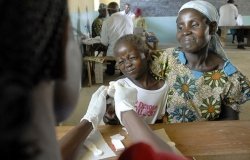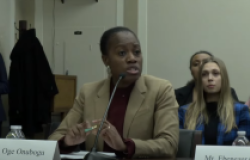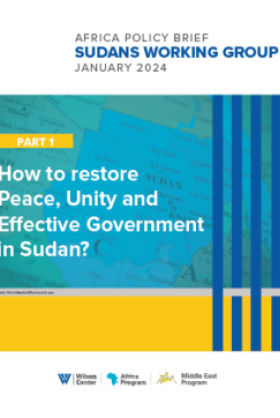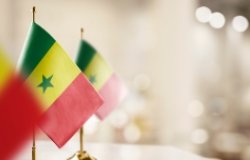Madiba: A Belief in Humanity
'The accessibility, casual intimacy and humanity that I was privileged to experience in meeting him has in fact, made an entire nation and world feel they were members of his family and can call him Madiba,' writes Steve McDonald on the sad occasion of Nelson Mandela's death.
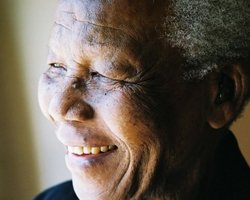
I have taken the liberty of using the familiar family name for Nelson Rolihlahla Mandela.
I do so because the first time we met, sitting together in the back seat of a limo driving from Cape Town airport to the Mount Nelson Hotel in downtown Cape Town, this legendary gentleman, less than a year out of an imprisonment of 27 years, made me feel at home. He was attending a conference on South African leaders with Members of the U.S. Congress that I had organized. As we rode along, we talked about many things:
I briefed him on the conference and its purpose. I told him of my history with South Africa, where I had lived and worked for four years in the 1970s as a diplomat and knew his wife Winnie. He talked movingly of his time on Robben Island. As we rounded the curve by the University of Cape Town, the vista opens to reveal the city in the distance, Table Mountain looming behind, and the harbor out to the right with Robben Island in the far, hazy distance. Mandela turned to me and said: “As a youth, I climbed that mountain,” pointing at Table Mountain, “and every day I was out there,” sweeping his hand towards Robben Island, “I looked back at the mountain and knew that I would stand on top of it again.”
The accessibility, casual intimacy and humanity that I was privileged to experience that day has, in fact, made an entire nation and world feel they were members of his family and can call him Madiba. That, in fact, was the remarkable effect he had on everyone who met him, enemies as well as friends.
I was to interact with Madiba several times over the years between 1990 and 1997. I continued to work in South Africa, first with the Aspen Institute, then the African-American Institute (AAI). With AAI we provided education for South African blacks, but were among the many groups that worked to implement and monitor the elections in 1994. I was to see Mandela in Washington and New York, prior to his presidency, when he was leading the negotiations to write the new constitution and prepare for the elections. But, my most memorable moment, and the one that shows the mettle of the man, was a conversation in Blair House, the official residence for visitors to the White House. Mandela was on his first state visit as President to see President Clinton. I was the Executive Vice President of the AAI.
We had awarded Mandela our annual leadership prize, which he could not accept at our gala dinner in New York. However, he had agreed to receive us and accept it during his visit to Washington. The Chairman of my Board, Maurice Templesman; my President, Vivian Lowery Derryck; and I were assembled to see Madiba. He spoke to us each in turn, before we sat down for a general conversation. When he approached me, and I reached out to introduce myself, Madiba stopped me in mid-sentence and told me how much he had appreciated the conversation we had almost 5 years earlier as we rode from the airport to Cape Town.
This remarkable man had not just recalled me, but what we had talked about, and the meaning of that day, which had helped mold a Congressional consensus on the need to override a veto by then President Ronald Reagan of the Comprehensive Anti-Apartheid Act which would exert pressure on the South African government to change.
I tell this story, not because of what it meant to me, but because it exemplified the very essence of Mandela’s being: an engagement in the humanity of all - “Ubuntu” in the Nguni languages of Southern Africa – and a commitment to fight oppression that would deny that humanity. Stories abound about his precise recall, phoning former colleagues on his release and remembering the names and ages of their children, asking about health issues, and citing incidents and conversations from almost 30 years before. He truly cared for humanity and set an example beyond our imagining of how to live an unselfish life. His commitment to that concept was the saving grace for a South Africa that could have erupted in irretrievable violence.
About the Author
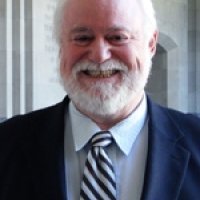

Africa Program
The Africa Program works to address the most critical issues facing Africa and US-Africa relations, build mutually beneficial US-Africa relations, and enhance knowledge and understanding about Africa in the United States. The Program achieves its mission through in-depth research and analyses, public discussion, working groups, and briefings that bring together policymakers, practitioners, and subject matter experts to analyze and offer practical options for tackling key challenges in Africa and in US-Africa relations. Read more

